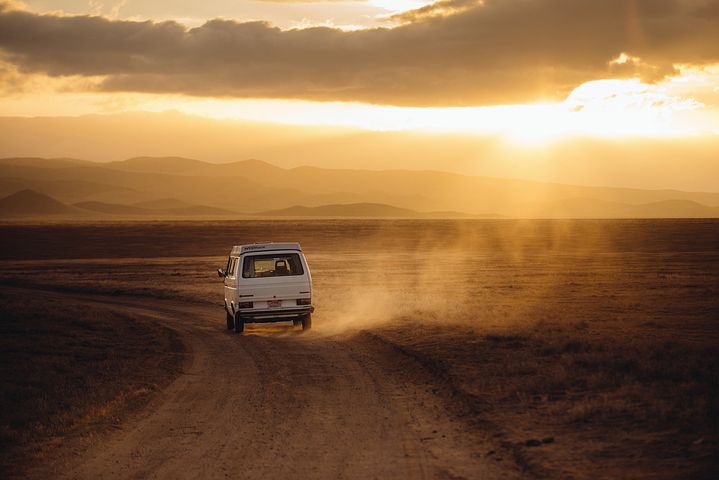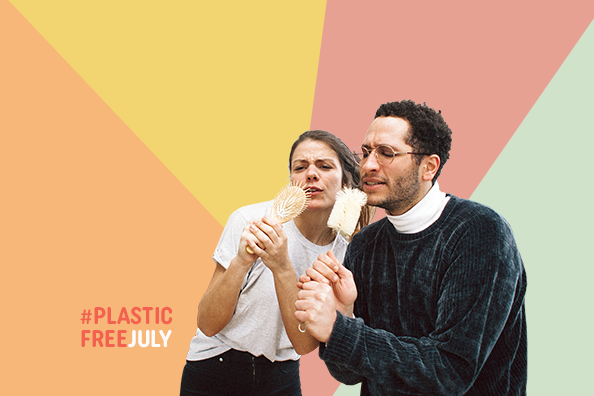
10 Tips for Sustainable Travel
Summer is the time for traveling. Who doesn't love discovering the world with a backpack on their back and a tent in their luggage? But traveling can sometimes be a real test of endurance, and not just for us - protecting the environment can also be a challenge when traveling. But if you want to travel around the world, you should also be concerned about protecting the world. So where is the best place to start?
Traveling often means leaving your comfort zone. In this situation, paying attention to a sustainable lifestyle can be quite challenging. But it is possible. Let's start at the very beginning, before the start of the trip.
1. Packing
For a zero waste backpacker, good preparation is essential. We have put together a list of essentials that we believe belong in every backpack.
• 1-2 outfits for each possible weather condition, so that nothing has to be bought on site. Here it is It is advisable to think carefully beforehand about the climatic conditions you will encounter during his journey could meet
• Lunchbox: A real zero-waster classic. You can use it to prepare food in your accommodation if you are going on day trips or travelling further. You can also have your food put in the box if you buy something on the way. Sustainable cutlery, for example made of bamboo, also makes sense here.
• A jute bag is a must. In many places, plastic bags are still used for shopping or running errands on the go. You can easily avoid these.
• It is also important to take a look in your cosmetic bag: a menstrual cup is a great help, especially when travelling to other countries where hygiene conditions are not always guaranteed or cosmetic products are more expensive. A toothbrush made from renewable raw materials, such as bamboo, is also a useful companion.
• In many countries around the world, toilet paper is not a given. This can sometimes lead to unpleasant situations. It is not compulsory, but it is a pleasant safety net for anyone who places great value on hygiene to have a small butt shower in their luggage. The final preparations at home
Before you start, all the food at home should be used up. It's best to start at least a week in advance and see: What should be used up first? How can I best use the remaining food? Oven-baked vegetables, casseroles or vegetable stir-fries, for example, are always good for using up lots of different foods at once. You can make fruit into compote and freeze it.
Anything you don't have time to process will surely be appreciated by your neighbors!
3. Choice of destination
The closer the destination is, the better for the environment. There is also exciting nature and cultural exchange to be found in Europe. Otherwise, the further away, the longer the stay. This way you save on emissions and also increase the recreational value for you.
4. Arrival
If you do have to fly, you should definitely offset your carbon footprint. You can either do this yourself by using a CO2 calculator to calculate the amount that corresponds to your emissions and then donate it to an organization of your choice. Or you can look at organizations like Atmosfair. It's really easy there.
5. On the road
Equipped with a bag, lunch box and bamboo cutlery , a lot of waste can be avoided when you are out and about. Lunch boxes that also have a plate built in are particularly practical. It is best to get into the habit of saying right from the start that you are not going to use bags, straws or disposable dishes every time you buy something. Of course, the dishes also include a solid, sustainable washing-up liquid that you can use to quickly rinse the box while you are out and about without worrying.
6. Ethical Shopping
Sustainable action also includes a social component. An important part of this is supporting the local economy when traveling. When shopping, you should try to support local retailers and small businesses. This makes the travel experience even more intense - after all, you can get products from the big chains everywhere.
7. Purify water
In many countries, tap water is not drinkable. There is often no deposit system. If you want to make your trip as sustainable as possible, you should take your own water purification system with you to countries without drinking water and deposits. This can also be used to convert local tap water into drinking water. Although it is a little more expensive to buy, in the long term you will save money on drinking water when traveling and avoid plastic bottles.
8. No to animal cruelty
Discovering a country's wildlife is one of the most exciting experiences you can have when traveling. Unfortunately, animals are often used as a lucrative attraction, which results in animal cruelty. Safari tours, elephant or camel rides? That's not necessary. If you love animals, it's better to avoid seeing them if in doubt.
9. Getting around
When travelling, it is doubly worthwhile to rely on local transport options. A rickshaw or tuk-tuk ride supports the local economy and brings you into contact with the locals. For the environment, it is best to use a bicycle or public transport as often as possible.
10. Be mindful of nature
Wild camping may be exciting, but there is a reason why it is often banned. It is better to camp in designated places and protect nature. Also avoid open fires and leave every place as you found it.
There are many details to consider when traveling sustainably. However, as a basic rule, it is worth adopting a fundamentally conscious approach to dealing with local ecological and social resources. As in other areas of life, when traveling we should always make sure to act in a way that is as gentle as possible for people, animals and nature.



Leave a comment
This site is protected by hCaptcha and the hCaptcha Privacy Policy and Terms of Service apply.